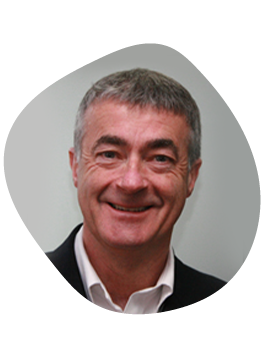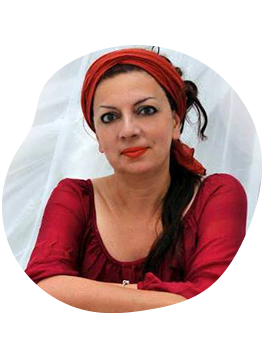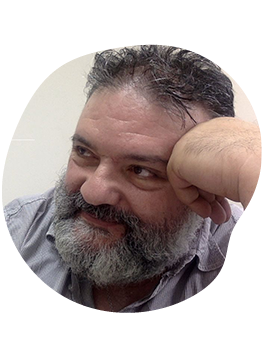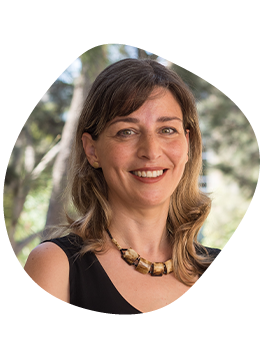Prof. Christopher James (University of Warwick) – Professor of Biomedical Engineering & Director of the Biomedical Engineering Institute, University of Warwick.

Abstract:
Like any engineering discipline, Biomedical Engineering concerns the application of engineering principles to problem solving in medicine and biology. This talk will follow my journey within the biomedical engineering field. My journey takes me from Malta, to New Zealand, to Canada and then the UK – but more than physical location it takes me from working on extracting information from the human brain and understanding what goes wrong when people have epilepsy, to understanding brain activity in those that are severely debilitated and unable to communicate: Brain-computer-interfacing allows those that are “locked-in” to communicate with the world around them. To do this we had to develop sophisticated data analysis techniques, methods such as blind source separation giving the ability to extract “conversations” initiated by the brain and deciphering the “words” used. This work in BCI led to working on an idea, a concept, that of brain-to-brain communication and with it all the many questions of the ethics that arise. In tandem my work expanded to not just extracting and understanding brain activity, but to also using the same machine learning techniques we were developing to extract and give meaning to behaviour, especially when extracted in an unobtrusive manner over day-to-day activities. Getting a grip on behaviour monitoring allows us to further understand conditions in mental health and to track changing behaviour on an individual basis.
My journey also involves taking research ideas to practical realities – my company EMbody Biosignals Ltd. develops and distributes a worm tracking station called TrakBox – a low-cost platform that allows neurobiologists to envision nematode behaviour on a scale previously unobtainable. On the other hand, my latest spin-out Augmented Insights Ltd.is taking our AI based behaviour monitoring algorithms and applying them to a series of application areas – initially in the management of older people in a care home environment.
Bio-note
Christopher James was born in Malta, received the B.Elec.Eng. (Hons) degree in from the University of Malta (1992) and a Ph.D from the University of Canterbury, New Zealand (1997). He was a postdoctoral research fellow (PDRF) at the EEG department of the Montreal Neurological Institute, of McGill University, Montreal; PDRF and then Lecturer with the Neural Computing Research Group of Aston University, Birmingham, UK; Reader in Biomedical Signal Processing at the University of Southampton, UK; had a personal chair in Healthcare Technology at the University of Warwick, UK and was founding Director of the Institute of Digital Healthcare. He is now Professor of Biomedical Engineering and Director of the Biomedical Engineering Institute at the University of Warwick.
He is a biomedical engineer whose research centers on the development of biomedical signal and pattern processing techniques for use as diagnostic or prognostic tools in the treatment of disorders of the human body – mainly in analyzing brain activity and in behavior analysis. He has published over 170 papers and has regular interaction with the press through newspaper articles, opinion pieces, radio interviews and TV programmes. In November 2012 he gave the prestigious IET Wheatstone Lecture on Brain-to-brain Communication in Chennai, India. In 2012 he was awarded the IET Sir Monty Finniston Medal and in 2013 the IEEE MGA Achievement Award. For the last two years he has been listed in the ”top 2% of scientists in the world, highly cited researchers list”, a study by Stanford University.
Prof. Peter McKiernan (Strathclyde Business School) – Professor of Management

Abstract:
The last decade has witnessed a ‘responsibility turn’ in scientific research from the UN Prime initiative, through the San Francisco DORA to the Leiden Manifesto, among others. These initiatives aim to return consistent quality and responsibility back into scientific method. Business and management research, criticised by many senior scholars for lacking both rigour and relevance, spawned the highly successful Responsible Research in Business and Management (RRBM) movement whose influence has helped shape the policies of accreditation agencies, journal editors and business school deans in recent years. Part of its agenda, made sharper by the powerful legacies of the global financial crisis and the impact of the pandemic, is the re-orientation of research around societal need, especially ‘grand challenges’, as part of a broader re-examination of the business school in future societies.
This presentation examines how we might better promote responsible research that is responsive to the challenge of relevance and how taking impact more seriously might change our research practices and how we help prepare management academics for the future. Among the challenges we face as a community is a need to legitimize the role of business schools as more than just the cash cow of the higher education world and to demonstrate the impactful nature of B&M research more broadly, beyond the claim of academic excellence as indicated by articles in 4* journals. Embracing ‘the double hurdle’ of rigour and relevance is an essential component of any future research strategy.
Bio-note:
Peter is Professor of Management in the Hunter Centre for Entrepreneurship at Strathclyde Business School in Glasgow. He holds a distinguished visiting professorship at Vrje Universiteit Brussel, and an adjunct professorship of management, University of Notre Dame, Ausotetralia. Previously, he was the Sir Walter Murdoch Professor of Management at Murdoch University in Australia and the APS Bank chair of strategy, at the University of Malta.
Peter’s main research focus is on organisational foresight and strategic management where, he has (co)authored 10 books, including the bestseller “Sharpbenders” on organisational turnaround, and many articles in top journals in Europe and in the USA. He has been Chairman and President of the British Academy of Management (BAM) and Vice-President and President of the European Academy of Management (EURAM), where he was a co-founder of i) the Academy; ii) its house journal - the European Management Review; and iii) its Research Leadership programme, which he led for a decade. He is the immediate past Dean of the Fellows College of BAM. He holds Fellowships of BAM and EURAM and of five other academic and professional bodies. In 2013, the Central and Eastern European Management Academy (CEEMAN) honoured him with their European ‘Institutional Champion’ award and in 2015, the BAM honoured him with the Richard Whipp ‘Life-Time Achievement award’. Peter is a co-founder of the community for responsible research in business and management (cRRBM).

Abstract:
Klitsa Antoniou’s lecture will concentrate on the prohibition of Walking at contested boundaries and the significance of embodied crossings as border performances. She will first draw examples from the international art scene and then will focus on artworks from Cyprus including two of her own, to address questions of performative artistic walking practices at such boundaries and inquire how effectively actions can problematize and challenge them.
Antoniou’s artworks, 2001/51/EC-Embodied Crossings-Now Boarding, (α collaborative and social participatory action, 2015-today) and The Long Walk (site-Specific Installation at Prespes Walking Encounters, 2021), attempt to respond to the above questions by transforming artificially imposed barriers into points of performative and irrational confrontation thus highlighting issues of freedom, subjectivities, trafficking and surveillance. For the 2001/51/EC - Embodied Crossings - Now Boarding, the artist and the Museum of Forgetting in Sweden, launched an open call through social media, inviting passengers flying from Cyprus to Sweden to “smuggle” a fish trap filled with refugees’ clothes. For the The Long Walk at “Prespes Walking Encounters’’ 2021, three exact copies of the yellow ‘’Caution’’ signs (U.S. highway safety sign warning motorists to avoid colliding with illegal immigrants darting across the road) were placed at various points by the main roads near the borders at Prespes. Both works raise fundamental questions and awareness with regard to immigration and refugees, the dangers and prosecutions they face during the otherwise inconspicuous, routine act of daily walking and simultaneously demonstrate the fundamental association of walking with the hope of a better life.
Klitsa Antoniou is a Professor of Fine Arts in the Fine Arts Department of the Cyprus University of Technology. She studied at Wimbledon School of Art and Saint Martin's School of Art and Design [B.F.A.] in London, at Pratt Institute [Master in Fine Arts] and New York University [D.A.] in New York. Since 2014 she holds a PhD in Theory and Philosophy of Art (Dissertation title: Contemporary Cypriot Art: Loss, Trauma, Affect and the Material that Passes into Sensation) from The Cyprus University of Technology.
Dott. Immanuel Mifsud (Università ta’ Malta) – Studjuż u awtur prominenti tal-lingwa u tal-letteratura Maltija

Titlu: Bogħod-Viċin, Viċin-Bogħod: Iċ-ċaqliq u n-nuqqas tiegħu fil-movimenti letterarji
Astratt:
Din hija era ta’ moviment: kontinwament tirċievi reklami mill-kumpaniji tal-ajru biex tapprofitta ruħek ħalli titlaq minn fejn int u tmur lejn post ieħor; l-istess jagħmlu l-kumpaniji li jorganizzaw il-ġiti fuq il-baħar. Il-Ministeru tal-Infrastruttura kontinwament – u b’ħafna kontroversja – iniedi proġetti ta’ toroq ġodda, twessigħ ta’ oħrajn qodma, inizjattivi għal trasport alternattiv ħalli jiġi ffaċilitat il-moviment. Sar anki għandek għaqda li tħeġġek tiċċaqlaq bir-rota anki għaliex it-tobba kontiwmament qegħdin jgħidulek li hemm bżonn li ċċaqlaq ġismek: timxi kuljum, tmur il-palestra jew il-pixxina regolarment, tagħmel l-eżerċizzju. Mal-ewwel daqqa t’għajn af tgħid li mhemm xejn ġdid f’dan kollu: il-moviment huwa xi ħaġa minn ewl id-dinja u wassal għall-għeġubijiet li fassal u sawwar il-bniedem. Imma din hija wkoll l-era tal-kontradizzjoni għax filwaqt li hemm din il-ħeġġa (jekk mhux ukoll pressjoni) biex tiċċaqlaq, hemm ukoll il-ħajra biex toqgħod fejn int kemm jista’ jkun, u dan intwera aktar malli faqqgħet il-pandemija: il-Wolt, il-Bolt, l-Ubereats u servizzi oħrajn simili li jġibulek l-ikel id-dar jew fl-uffiċċju minflok ma toqgħod tinqala’ minn postok. L-Amazon u l-online shopping li qabel kien servizz użat biss għax-xiri minn imkejjen oħra u llum jintuża wkoll għal xiri minn ħwienet kantuniera ’l bogħod. Zoom ħadek virtwalment fejn ma stajtx tmur u aktarx li tant drajt li llum il-ġurnata ssibha aktar faċli tilloggja milli taqbad l-karozza, tal-linja jew l-ajruplan. U t-teleworking: li taħdem mid-dar, aktarx bil-ħwejjeġ ta’ ġewwa jekk mhux bil-piġama minflok tidħol l-uffiċċju b’xagħrek iġġelljat, bil-makeup u l-fwieħa. Biex ma nsemmux li taqleb iċ-channels tat-televixin bir-remote biex ma tqumx minn fuq is-sufan, tagħfas il-buttuna biex ir-robot jiknislek u jaħsillek l-art u Alexa tobdi kull ordni li tagħtiha, u l-bqija.
Nota bijografika:
Immanuel Mifsud jgħallem il-letteratura kontemporanja u t-teorija letterarja fl-Università wara li li għal snin twal għallem il-letteratura Maltija fil-Kulleġġ tal-istess università. Huwa kiseb dottorat wara li ppreżenta b’suċċess teżi dwar il-ġisem fil-poeżija tas-seklu għoxrin u kompla jistudja u jikteb dwar dan is-suġġett. Mifsud regolarment jagħti taħdidiet u jikteb f’ġurnali akkademiċi, l-aktar dwar il-ġisem uman bħala artefatt kulturali u ta taħdidiet fl-universitajiet ta’ Birzeit, An-Najah (il-Palestina) u anki fl-università ta’ San Ċirillu u San Metodju fi Skopje. Fl-2017 Mifsud kien mistieden mil-Library of Congress f’Washington DC biex jagħti preżentazzjoni hemmhekk u waqt l-istess mawra kien ukoll mistieden jagħti taħdita mid-Delegazzjoni tal-Unjoni Ewropea fil-kapitali Amerikana.
Dr Daniela DeBono (University of Malta) - Researcher and Writer at the Department of Anthropology

Title: The Architecture of Violence: hostility, othering and exclusion at the EU’s Mediterranean border
Abstract:
While southern European countries claim to host and welcome people who survive treacherous sea crossings across the Mediterranean, a glance beyond dominant narratives and discourses reveals systemic exclusion and subjugation. This starts with non-assistance at sea and the criminalising of search and rescue NGOs, factors which contribute towards making the central Mediterranean route the deadliest border crossing in the world. Despite the dangers and the well-known risk of death, migrants persist in embarking on this journey by sea, in itself a clear indication of the strength of the push factors that compel them to move. Their hope is to find safety, freedom, opportunity, and human rights on the other side, Europe. Instead, their journey and reception are all too often characterized by death, detention, and hostility.
Drawing on a rich body of literature discussing borders and citizenship in contemporary societies, and my own long term ethnographic research on the central Mediterranean islands of Lampedusa, Malta and Sicily, this lecture will present the foundations of this system, designed and constructed to consolidate an ‘othering’ process, at any cost. Ironically, this ‘architecture of violence’ is officially shrouded in a humanitarian discourse. This lecture takes a social constructionist approach, looking into how these practices of ‘othering’ are (re)produced and resisted by the travellers, workers and locals present on the territorial border.
Bio-Note
Previously she was Associate Professor in International Migration and Ethnic Relations at the Department of Global Political Studies, Malmö University. She held a Marie Curie COFAS Research Fellowship at the Robert Schuman Centre for Advanced Studies, European University Institute, Fiesole and was a Research Fellow at MIM, Malmö. She was awarded a doctorate from the University of Sussex, where she was based at the Sussex Centre for Migration Research; and appointed Associate Professor at Malmö University. She has conducted long-term ethnographic research on irregularised migration across the Mediterranean, border control and management in Malta, Lampedusa and Western Sicily. She also undertook an ethnographic study on deportation from Sweden. In relation to these projects, she has published on irregularised migration in the Mediterranean, on hospitality, human rights and humanitarianism in the immigration field, on return and deportation from the EU. Daniela is the country expert for Malta at the Global Citizenship Observatory, European University Institute and has authored a series of reports on citizenship law and policy, naturalisation and access to electoral rights.